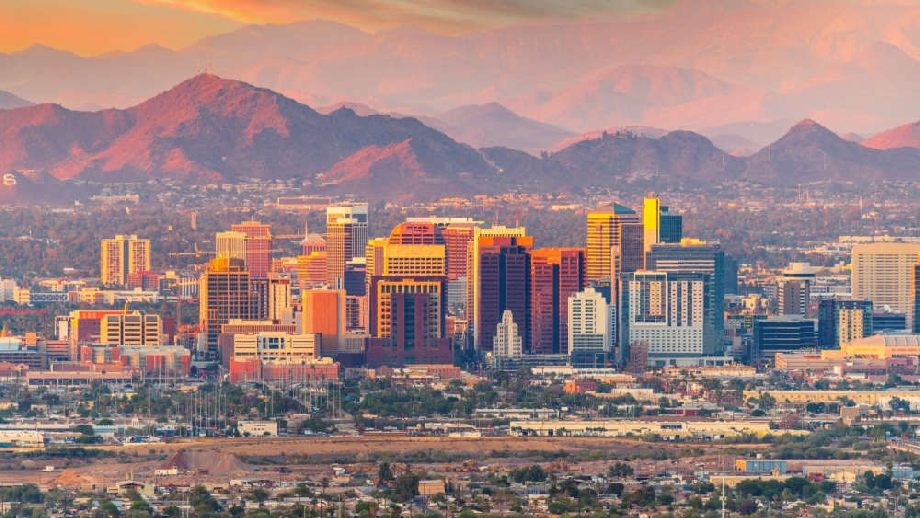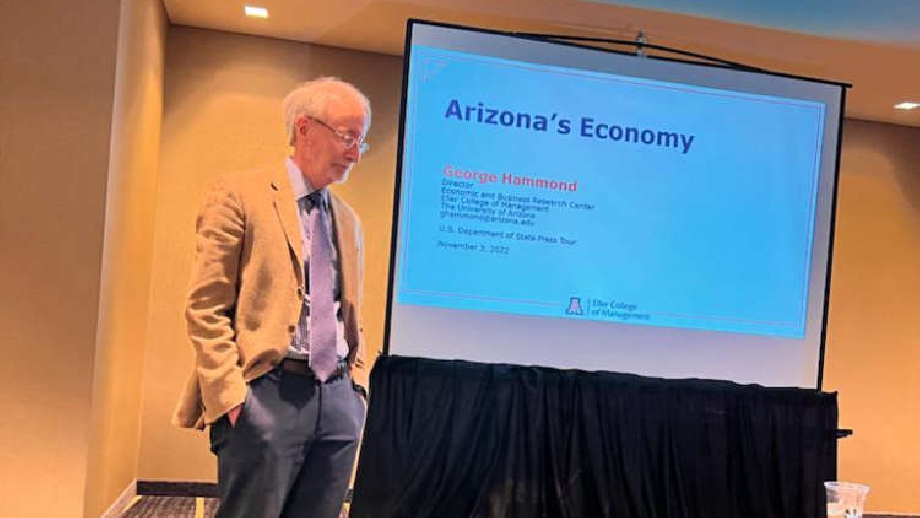
The economy will be top of mind for Americans as they vote next week in midterm elections.
But while we all know that elections here are about "the economy, stupid", the question of how economic realities affect the vote gets a different, complicated answer in every state.
And few states are as complicated - and critical - as Arizona.
Joe Biden won here in 2020, the first Democrat to do that in over a quarter century. Whether his party can repeat this, next week, will go a long way to deciding which party controls Congress for the last two years of his term.
America has a surplus of organisations (public and private, for-profit and non-profit) collecting economic data and sharing insights.
In Arizona, the Economic & Business Research Center has been making sense of the state’s economic trends since 1949.
The EBRC is part of the Eller College of Management at Tucson’s University Of Arizona.
With government funding of public universities falling since the 70s, American colleges have mastered the monetization of their research.
While listening to EBRC Director, George Hammond, make a presentation on the state of Arizona’s economy, I couldn’t help but think about his Nigerian counterparts, just returning from an eight-month strike over government funding.

Hammond believes Arizona voters want to sustain the state’s high economic growth compared to its neighbours.
“Arizonans really value the fast-growing economy that we have here in the state,” he told me when I interviewed him.
“And they want to see that continue. The debate is always about how to keep the state's economy growing rapidly, in terms of population, jobs, and income. And people are looking at the candidates, and judging for themselves about who can deliver that.”
So voters here all want more growth. They just disagree on what’s most essential for that growth.
For example, Hammond points out the tension between employers and employees over the Unemployment Rate.
Arizona has very low unemployment, which obviously the general population is happy about. But, this also means there are lots of unfilled jobs, which business owners insist will slow the economy down.
In a bit of a paradox, in spite of high employment numbers and unfilled jobs, Arizona’s wages are still lower than the national average.
In the middle of high Inflation rates led by rising housing costs, low wages are a pain-point that could affect the polls.
But why aren’t wages higher if employers need to hire more? Hammond points to the workforce’s education level.
Arizona’s Education Attainment Rate is lower than the national average. This is one of the reasons why Arizona welcomes migration from all over the USA: attracting better-skilled workers leads to higher productivity, leading to higher profits and wages, and a healthier economy.
This is in sharp contrast to the discourse in Lagos, where migration is never credited with the state’s growth but is instead painted as a burden.
Arizona’s migration wave is transforming both its demographics and its economy.
Its population is still older than average, but it’s getting younger. And this younger population is diversifying work and business.
The services sector is booming as housing wanes. These changes to who Arizonans are and what they do are probably also changing how they vote.
The state famously tends to go Red for federal elections, with Blue getting more of a look for statewide elections.
But like I said, Biden won two years ago, and the state is considered more of a swing state than at any other time in the last two decades.
Will this bring more surprises next Tuesday? Perhaps the ERBC’s data has the answer, but George Hammond isn’t telling.
Hard Facts: Disturbing America
Hard Facts host Sandra Ezekwesili is in the US covering the 2022 midterms, on the invitation of the State Department's Foreign Press Center. During the first 2 weeks of November, Sandra will be sharing her observations from the Campaign Trail in Arizona and North Carolina.


